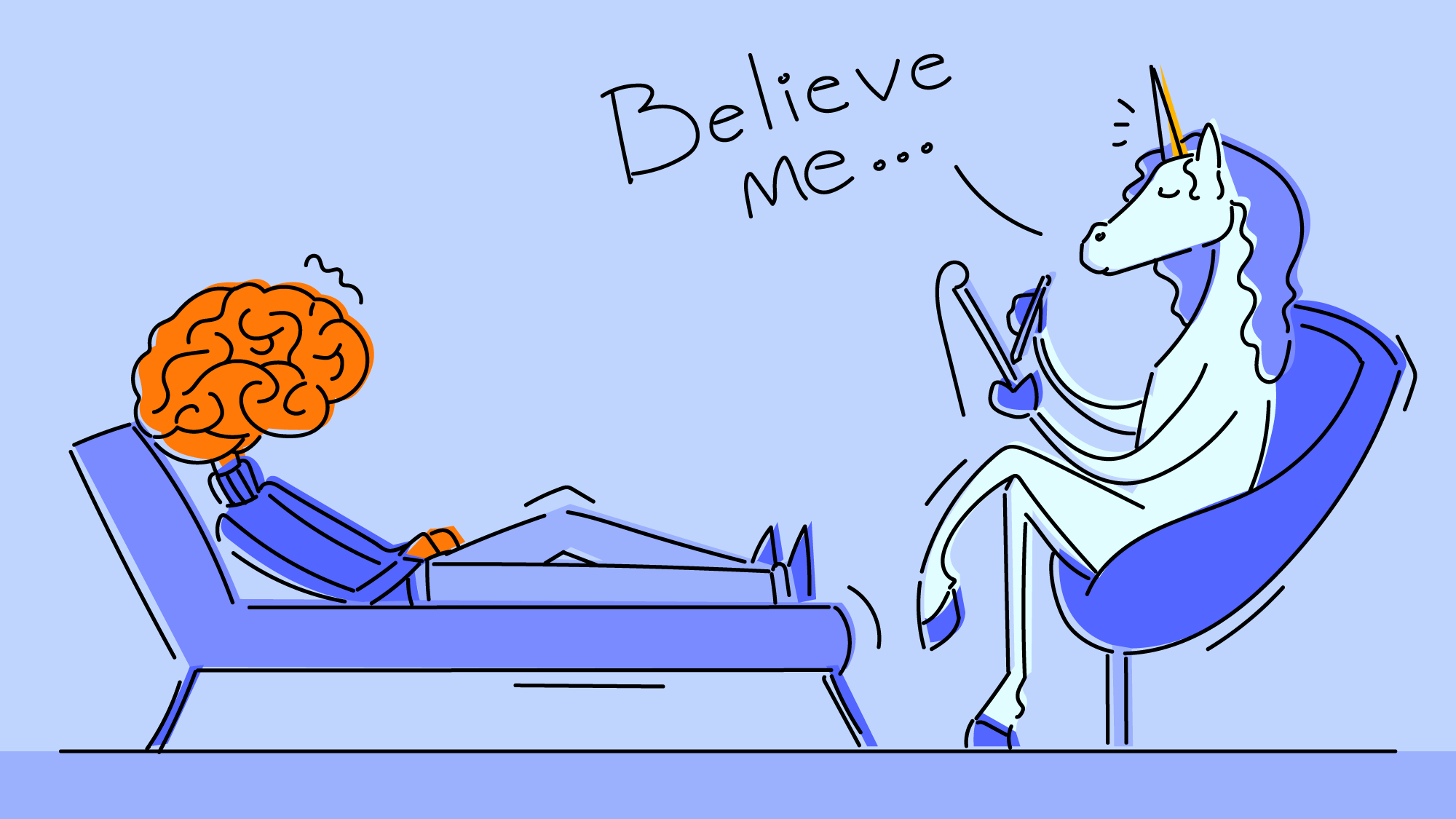Believe Everything

Something I heard recently is that your brain processes new information by first temporarily believing it and then, if necessary, disconfirming it. So if you're told something false, you'll very briefly believe it – try it on for size, I guess -- before tagging it as inconsistent with your existing knowledge, and therefore presumptively-wrong.
(Did it work? Did you believe my first paragraph, before you started thinking about it?)
Supposedly there was a neuroscience study about this, but the reason I believe it is rather because I notice myself doing it. The sensation I have when thinking about things is to ask myself a question and immediately have an answer pop into my head; the answer often "feels right," even thought it's (arguably) something that my brain just made up.
I think this might explain some of our vocal cultural and political disagreements.
It's easiest to hold a false belief and then not-disconfirm it when it's about something that's fairly unprovable, e.g. a complex system that we'll never fully understand and where nobody can definitively prove if you were right or wrong. In other words, culture and politics.
I think some political disagreements (some! not all!) might be caused by different people confabulating conflicting stories about things that none of us really understand, but then each developing that false-but-confident-belief sensation that the claim they invented is certainly true, because it feels like a true belief, because their brain immediately went into "belief mode" for it and never had something directly disconfirm it. They then feel angry or exasperated at people who "deny reality" by holding a conflicting invented belief.
Like a lot of things, in some ways this just pushes the problem back a few steps – where does our confidence come from in the first place? Why does our brain throw up one story and not some other? But for me, the insight is that
1) your brain "defaults" to believing a claim before checking if it conflicts with existing knowledge, and
2) some ideas are hard to disconfirm, so
3) we're susceptible to believing certain classes of claims, and then developing over-confidence that our belief is true, even though we don't have rigorous evidence for it
I mean, I say "insight" – I still don't know if any of this is true, but it feels true when I think it, so...